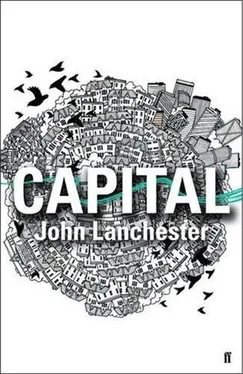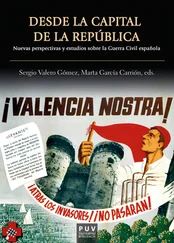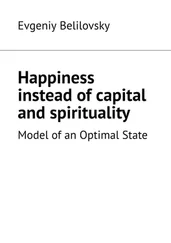So what was going on? Daisy had no idea. But one big difference between this Dostoevsky Parker and Grieving Parker was that this one didn’t seem to be mourning a specific loss so much as suffering a general and all-consuming sense of gloom and, unless Daisy was mistaken, guilt. He was fretting not about something which had been done to him, but something he’d done.
‘I wish you’d tell me what’s the matter, baby,’ Daisy said to him one evening in November, when she’d got home knackered from work and had wanted nothing more than to have supper cooked for her, maybe a back rub, and then to watch some junk TV with her boyfriend of long standing. Instead here she was sitting in silence over a ready meal she herself had microwaved, acting as the equivalent of an unpaid psychiatric nurse. She wanted to yell, but that didn’t work with Parker; he would just retreat further. So she did her best to gentle him out of himself. She also knew that there wasn’t much more of this she could take, and that she couldn’t face doing it for much longer. She couldn’t think of any more things to list under No.
What she didn’t know was that Parker was longing to tell her, was desperate to tell her. He wanted nothing more than to confess. He wanted to break down all the barriers he had artificially built up, to knock down his jerry-built edifice of silence and secrecy and false self; to blurt and blub and let it all out. The need to confess rose in his throat like a nausea. And yet he couldn’t speak, and so the two young people who loved each other stayed stuck and miserable.
If Quentina had been asked what she expected from the detention centre, she might have got several things right straight away. She could for instance have guessed that there would be no privacy, that male guards would feel free to barge into women’s rooms and search their belongings whenever they felt like it, and that many of the women, some of them devout Muslims, would be outraged. No surprise there. She would have expected the food regime to be poor – not that they couldn’t get anything to eat after five o’clock, or that the children, of whom there were many, would sometimes be crying with hunger. She knew that the place was a prison and would feel like one. But what she hadn’t expected was the politics – the internal politics. When she arrived, she found that a large group of prisoners was on hunger strike to protest against conditions at the prison and they had a list of fifteen demands, including that the authorities give back the birth certificates that they’d taken away from children born in the UK, and also that they reinstate the daily allowance of 71 pence. And they wanted access to legal information, since the majority of them had no legal representation.
Quentina agreed with all fifteen of the demands. But she had only just got there, was still dazed and bewildered from the immigration hearing, and just didn’t feel ready to pitch straight into a hunger strike. The causes were all right, all just, but they weren’t honestly her causes – she was a new girl and hadn’t even known about the existence of the 71p allowance. Quentina felt that she hadn’t been in the detention centre long enough to get really angry about the conditions. For the moment she was just trying to survive.
That wasn’t the general feeling. The atmosphere at the Refuge in Tooting had been low, verging on depressed, with the emphasis on survival and endurance. Thrown in with that was an unspoken emphasis on the need to acknowledge the good intentions of their benefactors, who were keen to send the message that not all British people were as cruel as their government and their newspapers. That was not the mood at the detention centre. Here people were angry, fumingly angry, all the time. They hated the government, hated the press, hated the administrators of the detention centre. There had been riots the previous year, when warders had tried to prevent detainees from watching a documentary about conditions at the centre. It was easy to imagine that there could be riots again. In the mean time there was the hunger strike.
Quentina’s guide to this was Makela, a Nigerian doctor who had run a clinic for victims of female circumcision. Her application for asylum had been rejected because the authorities believed, or claimed to believe, that her life was not really at risk back in Nigeria. She was angry, but not with Quentina; she agreed that Quentina as a new arrival couldn’t pitch headlong into the centre’s politics. She also made it clear that in her view, over time, the politically aware detainees had a responsibility to make trouble, especially if they didn’t have children.
That would be in the future – perhaps a long time in the future. Quentina, for the first time since she had arrived in the UK, felt defeated. The air here was hard to breathe; it was thick with resentment and the lack of hope. That was why people were so angry: it gave an alternative to being completely beaten, broken, finished. All Quentina wanted to do was sit on her bed and look at the ceiling. Nothing seemed to have any point or purpose.
The immigration tribunal hearing had been a disaster. In her first sighting of the red-faced judge presiding over it, she had felt a flicker of hope: he looked like a man whose natural state was to be reasonable. But as the first morning went on she saw that this was misleading. When he did ask questions they were pointed and implicitly sceptical. How exactly had she got into the UK? How exactly had she been supporting herself? When the government’s lawyers got on to the fact that she had been working illegally, she saw his manner harden. The pretence of friendly impartiality melted away. At that point, noon on the Monday morning, she realised that her application was going to be rejected.
At the end of his day’s hearing, her lawyer, a mild-mannered woman in early middle age, turned to her and made a grimace.
‘That was terrible,’ said Quentina, to save her the trouble.
‘I didn’t want to say anything,’ said the lawyer. ‘But he’s one of the toughest ones. I’m sorry. Don’t worry, if we lose, which we haven’t done yet, there’s still every chance for an appeal.’
They hadn’t lost yet – but they might as well have. Tuesday was just as bad as Monday, with the judge dwelling much more heavily on the subject of Quentina’s illegal employment than on the prospect of what had happened to her in Zimbabwe before she left, and what would happen to her if she was sent back. He moved through all those details briskly. It was no surprise when his judgment, as they received it on the following Monday, was that she should be deported. In practice that meant being sent to an immigration removal centre to await the result of her appeal.
She had been here now for two months. The drive down was in a minibus owned by the private security company that ran the detention centre, for a profit, on behalf of the government. Under other circumstances Quentina would have enjoyed the trip: a chance to admire the famous green fields of England, which she’d never actually seen before, unless you counted the Common. There were arable fields, cows, tractors. So England was not just London after all. Quite funny to find that out just before being forced to leave. Her first sight of the detention centre’s main building had given her a flash of optimism: a three-storey modern structure with a car park in front. To anyone familiar with the vernacular of contemporary British buildings, it looked like a motel or a conference centre, or maybe a sixth-form college. But as with the judge, first impressions turned out to be deceptive. The immigration centre was a prison, with the twist that when people were discharged from prison they went somewhere better, but when they were discharged from here they were sent back to the place they had risked everything to escape.
Читать дальше












